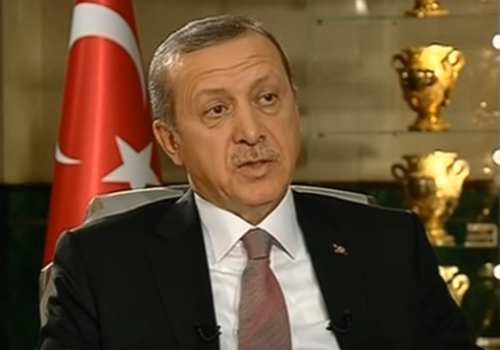Recep Tayyip Erdogan was sworn in as Turkey’s president on Saturday, following his re-election victory last weekend. In his post-inauguration address, Erdogan vowed to work diligently to protect the nation’s independence and fulfill his duties impartially. Despite a challenging cost-of-living crisis, Erdogan defied predictions and secured 52.2% support in the runoff vote on May 28, highlighting his ability to overcome obstacles and resonate with a significant portion of the electorate.
Global Leaders Attend Inauguration Ceremony
The inauguration ceremony saw the presence of several world leaders, including Prime Minister Shehbaz Sharif, Turkish Republic of Northern Cyprus President Ersin Tatar, Venezuela President Nicolas Maduro, and Kosovo President Vjosa Osmani. Their attendance emphasized the importance of Erdogan’s re-election for both Turkey and the international community.
Erdogan Begins New Term with Authoritarian Policies
With a new five-year mandate, Erdogan is set to pursue his increasingly authoritarian policies, which have polarized the country and solidified Turkey’s position as a regional military power. The new parliament convened on Friday, and Erdogan will officially begin his new term by taking his oath in the general assembly in Ankara.
Grand Ceremony at Presidential Palace
Following the oath-taking, a grand ceremony will be held at the presidential palace, attended by high-level officials from 78 countries and international organizations. Notable attendees include NATO Secretary-General Jens Stoltenberg, Venezuelan President Nicolas Maduro, Hungarian Prime Minister Viktor Orban, and Armenian Prime Minister Nikol Pashinyan, according to state-run Anadolu Agency.
New Cabinet Announcement Signals Potential Economic Shift
Later in the evening, Erdogan is expected to announce his new cabinet, which will shape his policies for the coming years. Former economy chief Mehmet Simsek is anticipated to be included in the cabinet, signaling a potential return to more economic orthodoxy, including eventual interest rate hikes. Simsek’s previous tenure as finance minister and deputy prime minister between 2009 and 2018 garnered high regard from investors.
Erdogan’s Political Journey and Opposition Challenges
Erdogan’s rise to power began in 2003 when his AK Party won an election following a severe economic crisis. In 2014, he became Turkey’s first popularly-elected president and was re-elected in 2018 after securing new executive powers through a referendum in 2017. The recent election holds significant importance as the opposition aimed to oust Erdogan and reverse many of his policies, including proposing sharp interest rate hikes to counter high inflation. Erdogan acknowledged inflation as the nation’s most urgent issue in his victory speech.
Economic Challenges and Uncertain Future
However, analysts have expressed concerns about the sustainability of current policies, citing depleted foreign reserves, an expanding state-backed protected deposits scheme, and unanchored inflation expectations. The Turkish lira has experienced multiple crashes in recent years, reaching new all-time lows in the days following the election. As Erdogan assumes his new term, the direction of the economy remains uncertain, and the country faces challenging economic circumstances that demand careful attention and strategic decision-making.
(Islamabad51-Newsdesk)














